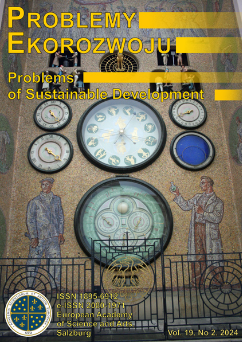Uneven Integration and Blocked Spillovers: Why Environmental Governance in Northeast Asia does not Converged to the EU Model?
Liang Dong
School of International Studies, Peking University, 100871 Beijing (China)
Abstract
The EU environmental governance is recognized as an effective path to the management of regional environment. This model is based on rules, directives, top-bottom coordination and also in the characteristics of multi-level governance, which has become an example for various regions to imitate in the world. By contrast, environmental governance in Northeast Asia, equally with a strong demand in dynamic cooperation, failed to deal with the increasing environmental problems and it also doesn’t converge to the EU environmental governance over the years. Instead, it established a non-binding cooperation in nature. The Northeast Asia model is a kind of cooperation lack of effectiveness, coordination between regional environmental regimes, without a stable financial arrangement for each cooperative initiative, mainly dominated by the governments, and also lacking of other actors involved in environmental issues. This model is caused by regional security tension which changes the cooperation preference overall, nations especially between China and Japan do not share political trust in high politics. This situation makes regional environmental governance to be a more independent area, with rarely high political interference and without spillover channels to other issues. Theoretically speaking, the Northeast Asia cooperation in environment is based on inter-governmental arrangements, thus, Neo-Functionalism’s spillover effects were significantly inhibited. That means to enhance environmental governance in Northeast Asia will mainly rely on intergovernmental push in the future.
Keywords:
the EU, environmental governance, Northeast Asia, convergence, neo-functionalismReferences
BELL S., McGILLVRAY D., PEDERSEN O., 2013, Environmental Law, Oxford University Press, Oxford, p. 210-213.
Google Scholar
BURNS CH., CARTER N., 2012, Chapter 36 Environmental Policy, in: Jones E., Menon A., Weatherill S. (eds.), The Oxford Handbook of the European Union, Oxford University Press, Oxford, p. 512.
Google Scholar
DAVIS CROSS M.K., 2013, Rethinking Epistemic Community Twenty Years Later, in: Review of International Studies, vol. 39(1), p. 138-139.
Google Scholar
DOUGHERTY J.E., PFLATZGRAFF R.L. Jr., 2003, Contending Theories of International Relations: A Comprehensive Survey (5th Edition), Pearson, Chinese Edition, Beijing, p. 543-556.
Google Scholar
KOMORI Y., 2010, Evaluating Regional Environmental Governance in Northeast Asia, Asian Affairs, in: An American Review, 37(1), p. 21.
Google Scholar
LAURSEN F., 2012, Chapter 9 The Treaty of Maastricht, in: Jones E., Menon A. Weatherill
Google Scholar
S. (eds.), The Oxford Handbook of the European Union, Oxford University Press, Oxford, p. 121.
Google Scholar
SANDHOLTZ W., SWEET A.S., 2012, Chapter 2 Neo-functionalism and Supranational Governance, in: Jones E., Menon A., Weatherill S. (eds.), The Oxford Handbook of the European Union, Oxford University Press, Oxford, p. 18-19.
Google Scholar
TAKAHASHI W., Environmental Cooperation in Northeast Asia, see at: http://pub.iges.or.jp/modules/envirolib/upload/1704/attach/neasia.pdf (28.12.2014).
Google Scholar
VOGLER J., 2005, The European Contribution to Global Environmental Governance, in: International Affairs, vol. 81, no. 4, p. 841.
Google Scholar
XU Q. (ed.), 2006, Zhongguo guoji quyu huanjing hezuo huibian (China International regional environmental cooperation documents), China Environmental Science Press, Beijing, p. 347.
Google Scholar
XUE X, ZHANG H., 2013, Choices for Environmental Governance in Northeast Asia: the European Model or the Northeast Model?, in: International Politics Quarterly, vol. 3, p. 56-58.
Google Scholar
YOON E., 2008, Cooperation for Transboundary Pollution in Northeast Asia: Non-binding Agreements and Regional Countries’ Policy Interests, in: Pacific Focus, 22(2), p. 78.
Google Scholar
ZHANG H., 2008, Environment and International Relations (Huanjing yu guojiguanxi: quanqiu huanjing wenti de lixing sikao), Shanghai’s People Press, Shanghai, p. 35.
Google Scholar
ZHANG H., 2008, From Absorber to Engine: The Sino-Japanese Cooperation on Environment faces Important Change, in: Shijie Huanjing (World Environment), vol. 4, p. 76-79.
Google Scholar
Authors
Liang DongSchool of International Studies, Peking University, 100871 Beijing China
Statistics
Abstract views: 17PDF downloads: 6
License

This work is licensed under a Creative Commons Attribution-ShareAlike 4.0 International License.




